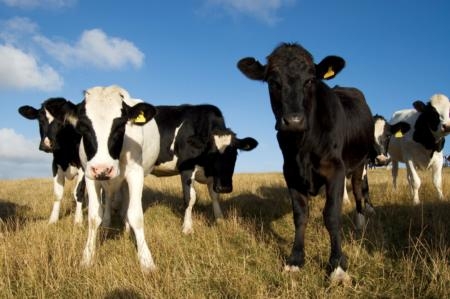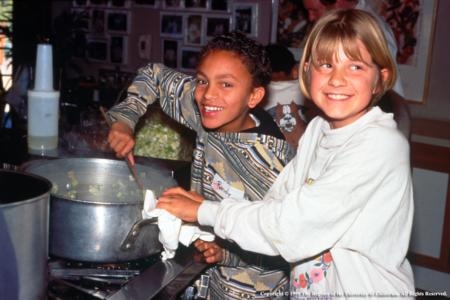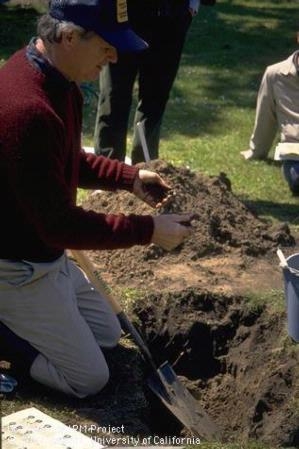
Posts Tagged: science resources for youth
Soil Education
Soils perform vital functions, and are the basis of the ecosystem. Healthy and productive soil is vital for our survival. It is an amazing resource and fascinating to learn about.
The Natural Resources Conservation Service (NRCS) has a great collection of informative and inspirational soil topics. All NRCS resources are free. They include:
- Soil facts – definitions, career information, soil basics, glossary, and regulations for moving soils
- Painting with soil – Jan Lang’s images of the Lewis and Clark Expedition
- 10 key messages to understanding soils
- Find out about your state’s soil
- Links for students and teachers – available for grades K-6, 7-12, and college level
- Videos and webinars
- Dig It! The Secrets of Soil
- NRCS photo gallery – natural resource and conservation related photos from across the United States
- And more
Backyard conservation
The Natural Resource Conservation Service (NRCS) works extensively with the nation’s farmers and ranchers to protect soil, water, air, plant, and animal resources while meeting production goals.
Working with agricultural producers allows NRCS to promote conservation practices approximately 1.4 billion acres of the privately held land in the United States. About 92 million acres of land in our country is tended by home gardeners. In an effort to promote conservation on these lands, NRCS has partnered with other organizations to produce, Backyard Conservation: Bringing Conservation From the Countryside to Your Backyard.
This full-color and informative online resource highlights 10 conservation activities that can be used in your backyard, shared spaces, and public places too.
Topics include:
- Trees add beauty and so much more.
- Trees, shrubs, and other plants can provide homes and food for wildlife.
- A backyard pond will likely become the focal point for all your backyard conservation.
- Wetlands filter excess nutrients, chemicals, and sediment and provide habitat for a host of interesting creatures.
- Composting turns household wastes into valuable fertilizer.
- Mulching cools, protects, and enriches the soil.
- Apply only those nutrients the plants can use. (See our previous post on soil test kits to help you get accurate test results.)
- Terracing makes flower and vegetable gardening possible on steep slopes.
- Drip irrigation and other water conservation practices can save water and money.
- Early detection and treatment of pests means a healthier growing environment.

Backyard Conservation from NRCS can help people create beautiful and healthy environments! Photo from NRCS resource.
Protect Your Drinking Water
Water is essential to life. Clean water supplies require the efforts and cooperation of many. It is our responsibility to learn about this life sustaining natural resource, and take steps to ensure our supply is safe to drink.
The U.S. Environmental Protection Agency (EPA) has an extensive collection of resources to educate the public about drinking water. Titled, Protect Your Drinking Water for Life readers have many topics to explore and a variety to learn about their water supply and takes steps to protect it.
Topics include:
- Drinking water
- Education & training
- Grants & funding
- Laws & regulations
- Our waters
- Pollution prevention & control
- Resources & performance
- Science & technology
- Water infrastructure
- What can you do?
- Adopt your watershed
- After the storm
- Emergency preparedness
- Good Samaritan
- Nonpoint source toolbox
- Pollution prevention
- Protect your health
- Protecting drinking water
- Volunteer monitoring
- Water efficiency
There is also a collection of resources designed for youth, which includes games and activities, and curriculum for teachers.
 Ensuring our water supply is safe to drink is a responsibility we all share. Learn steps you can take to improve the water quality in your watershed.
Ensuring our water supply is safe to drink is a responsibility we all share. Learn steps you can take to improve the water quality in your watershed.
Sustainable Agriculture Research & Education (SARE) Learning Center
Dedicated to advancing innovation in sustainable agriculture, SARE has many resources and learning opportunities available. At their Learning Center website you will find links to handbooks, bulletins, online courses, fact sheets, videos, newsletters, and more. Hardcopy resources can be ordered through the SARE WebStore. All online resources are available at no cost.
Topics include:
- Animal Production
- Community Development
- Crop Production
- Economic/Marketing
- Education & Training
- Energy Conservation & Renewable Energy
- For consumers
- Integrated Systems
- Natural Resources/Environment
- Pest Management
- Quality of Life
- Soil Management
- Specialty Crops
- Value Added Products
 SARE has a wide assortment of free online resources designed to educate food producers and consumers.
SARE has a wide assortment of free online resources designed to educate food producers and consumers.
Healthalicous Cooking
UC ANR’s new after-school curriculum is designed to help 9 to 12 year olds good health skills that will last a lifetime. The six week hands-on program promotes preparing and eating healthy meals as well as encouraging plenty of physical activity.
In addition to the introduction these free, downloadable lessons include:
- Let’s Make It Clean: Wash Up!
- Make It Healthy: Eat Balanced Meals
- Make It Crunchy: Go for Whole Grains!
- Make It Colorful: Choose Fruits and Veggies by Color
- Make it Delicious: Plan and Balance
- Make It Fun: Eat and Share


